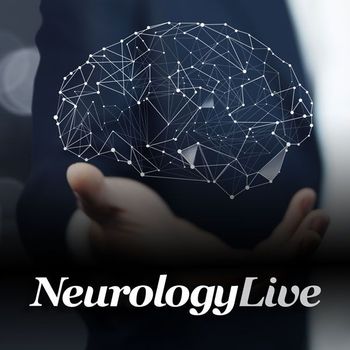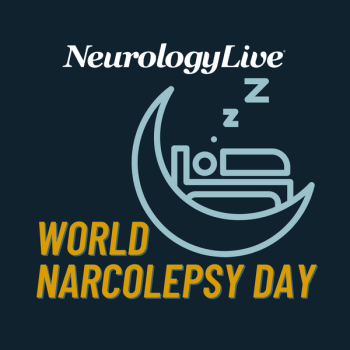
Patients treated in the 10- and 20-mg once daily groups showed statistically significant improvements in UPDRS parts II, III, IV, and in total MDS-UPDRS scores compared with baseline.

Marco Meglio, Assistant Managing Editor for NeurologyLive, has been with the team since October 2019. Follow him on Twitter @marcomeglio1 or email him at [email protected]

Patients treated in the 10- and 20-mg once daily groups showed statistically significant improvements in UPDRS parts II, III, IV, and in total MDS-UPDRS scores compared with baseline.

Evanthia Bernitsas, MD, neurologist, Wayne State University, discussed a recently conducted analysis, which confirmed inebilizumab’s ability to treat African Americans with NMOSD.

None of the associations between blood pressure and outcomes were modified by successful reperfusion at the end of the endovascular treatment procedure.

Most attacks occurred within the first year of inebilizumab treatment, and nearly all participants were attack free in subsequent years following treatment initiation.

The expert medical director at Roche provided context on recently published data, which showed prasinezumab’s positive impact in delaying motor progression in patients with Parkinson disease.

In the largest prospective study evaluating the Penumbra system, 87.4% of patients achieved postprocedure modified Thrombolysis in Cerebral Infarction scores between 2b to 3.

Investigators observed a high prevalence of cerebral microbleeds, cortical superficial siderosis, and history of intracerebral hemorrhage, all well-established surrogate markers of cerebral amyloid angiopathy severity.

During the double-blind treatment phase, rates of hypertension AEs were low for the placebo and erenumab 70- and 140-mg treatment groups, as well as during open-label erenumab treatment.

Differences in response to treatment with levetiracetam (Keppra; UCB Pharma) among individuals with and without epileptiform activity who have Alzheimer disease warrant future investigations of other antiseizure medications in this population, according to study authors.

In preclinical mouse models lacking both dystrophin and utrophin, treatment with an agent using the company's PN chemistry resulted in 100% survival at 40 weeks, setting up the therapy for this phase 1b2/a trial.

After 10-12 months of treatment, 51.2% of patients responded with a clinically meaningful reduction in drop seizures, while 25.3% of patients demonstrated a profound reduction.

Neurology News Network for the week of October 2, 2021. [WATCH TIME: 4 minutes]

David R. Lynch, MD, PhD, professor of neurology, University of Pennsylvania Perelman School of Medicine, discussed why omaveloxolone’s recent success speaks to the progress made within the FA treatment space.

Children and adults with migraine displayed significantly less REM sleep as a percentage of total sleep time than healthy individuals.

Even after excluding those who received ALS diagnosis in the 5 years prior, higher HDL and APOA1 levels were associated with a lower risk of ALS.

The multinational study uses change from baseline to week 12 in total Unified Parkinson’s Disease Rating Scale score, defined as sum of parts II and III scores, as the primary end point.

The agent had previously demonstrated positive results in a phase 2a setting, with favorable trends on modified Unified MSA Rating Scale scores across a 12-week period.

The professor of neurology at the University of Pennsylvania Perelman School of Medicine discussed the state of care for Friedrich ataxia and omaveloxolone’s potential to become its first approved therapy.

The submission includes findings from Study 1601, along with long-term safety and efficacy data from Zogenix’s ongoing open-label extension trials.

Despite not achieving statistical significance, there was greater relative reduction in seizure frequency over placebo in those with a structural etiology for focal epilepsy than those without, laying the foundation for future research.

Jessica Caldwell, PhD, director, Women’s Movement Prevention Center, Cleveland Clinic, sat down shed light on the understanding of Alzheimer disease in women and their inclusion in clinical trials.

Between PREVENT baseline and end, mean EDSS and Hauser Ambulation Index scores improved with eculizumab (Soliris; Alexion) monotherapy and deteriorated with placebo alone.

The findings identified Th2-related cytokines as characterizing for the prognosis of acute episodes of NMOSD at 1 month and found serum NfL to be a likely biomarker of disease severity at attack.

The expanded access program is designed to provide individuals with ALS who are not eligible to enroll in the Healey ALS Platform Trial access to CNM-Au8.

More than 80% of those with NMOSD experienced disease relapse 6 months after discontinuation of immunosuppressive therapy.

On World Narcolepsy Day 2021, get a recap of the latest advances in narcolepsy that you might have missed over the last few months, compiled all into one place by the NeurologyLive team.

The director of the Women’s Movement Prevention Center at Cleveland Clinic discussed her new study, and the current knowledge of the role genetics play in Alzheimer disease risk.

Over a 12-month stretch, patients with spinocerebellar ataxia type 2 treated with riluzole showed significant worsening in Composite Cerebellar Functional Severity Score.

Both the 200-mg and 350-mg dose groups showed numerically advantageous differences over placebo in secondary end points such as average daily pain score and 30% reduction in ADP.

Patients previously randomized to omaveloxolone in the core study period continued to show no worsening on modified Friedrich Ataxia Rating Scale relative to their original baseline after nearly 2.5 years of treatment.